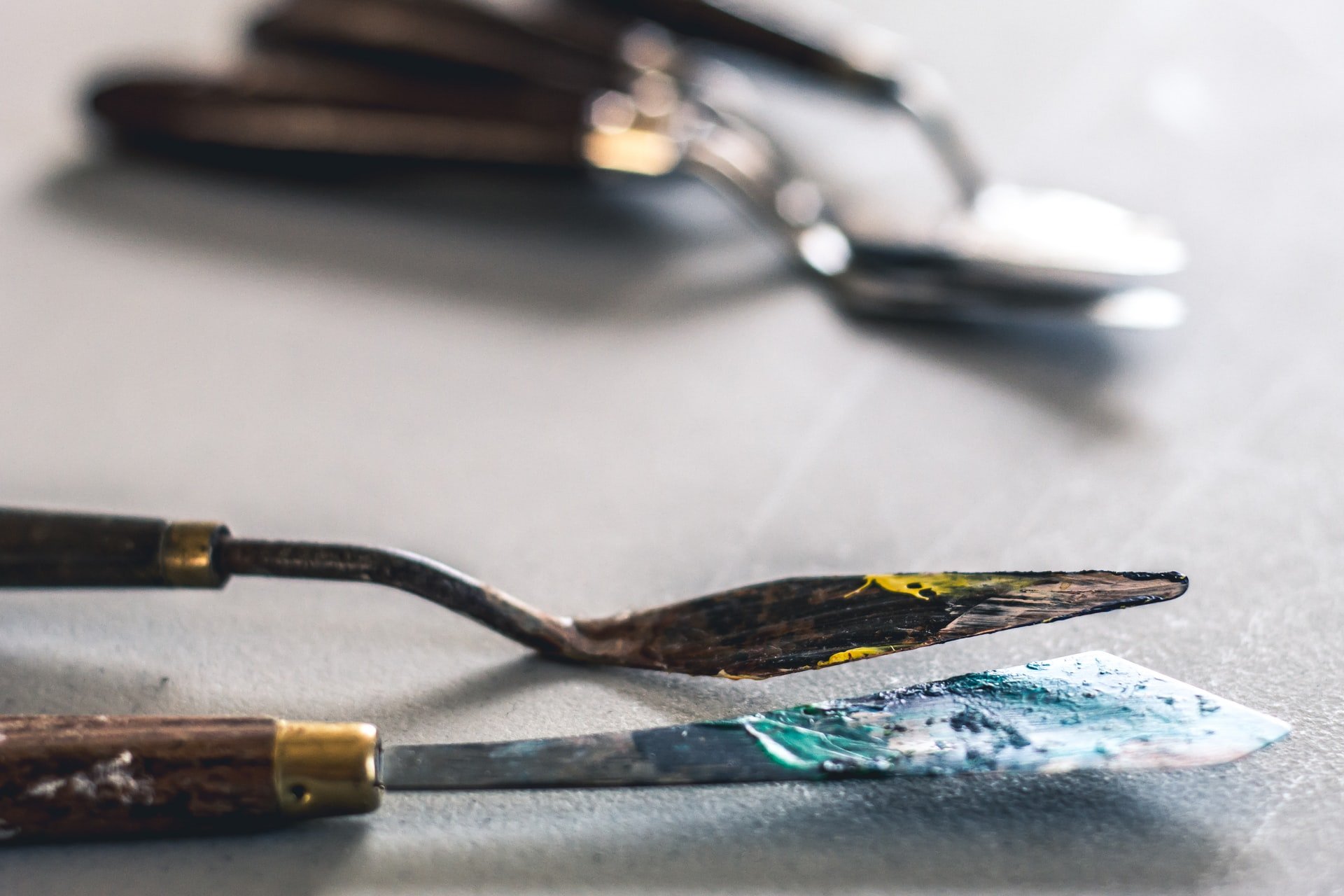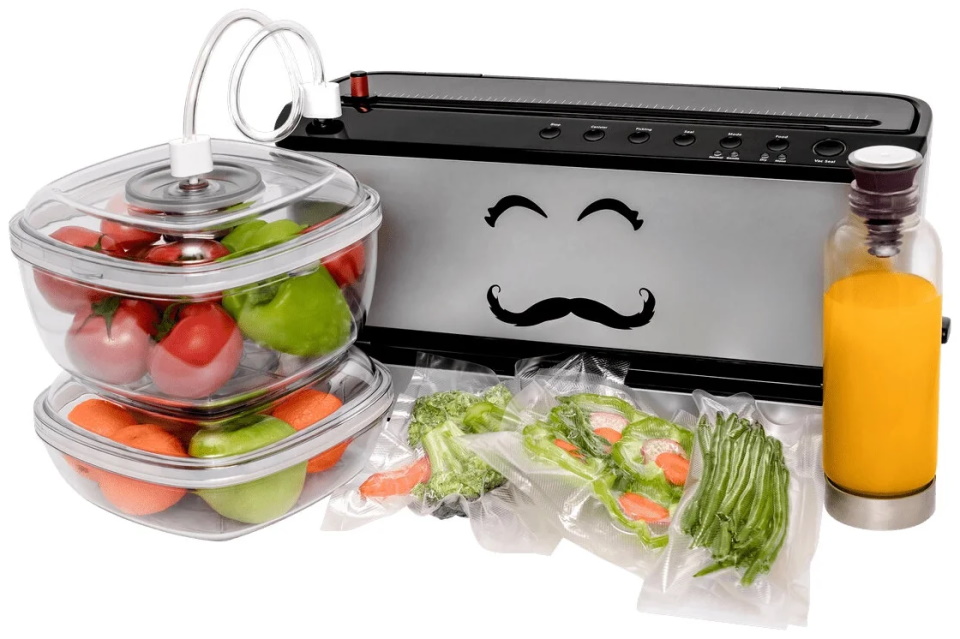Rating of the best silicone lubricants for 2025
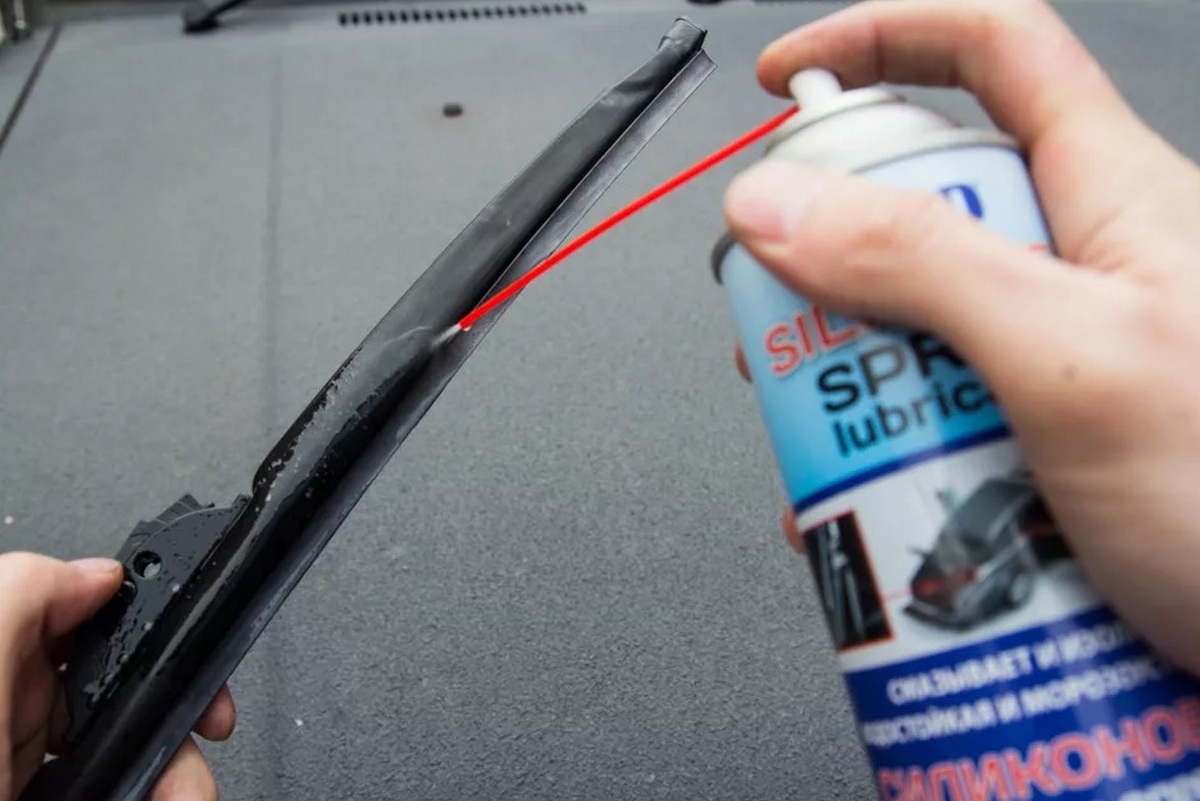
Silicone grease is a synthetic material based on silicone oil. The substance is white. These lubricants are distinguished by a whole range of important performance parameters, with the help of which they have gained great popularity in terms of industrial and domestic applications. These substances received special love from motorists.

Content
- 1 Modern types of silicone lubricants
- 2 Properties and compositions of silicone lubricants
- 3 Advantages and disadvantages of silicone lubricants
- 4 The use of lubricants in everyday life and industry
- 5 The use of lubricants in the field of auto repair
- 6 Removing silicone grease
- 7 Rating of the best silicone lubricants for 2025
- 8 Instead of an epilogue
Modern types of silicone lubricants
The compositions under consideration can be produced in the following forms:
- Paste is a thickened mixture with a high level of density, which is used to treat large bases that are in the available space. The paste is applied with a sponge or napkin and can “envelop” some small details. It is quite difficult to distribute it over the base, but at the same time it forms a strong layer that can withstand increased loads, coupled with other adverse effects.
- Gel - it is somewhat similar to a paste, but it has a lower consistency density, therefore it does not fall into small cracks and carefully “bypasses” third-party objects.
- Liquid - it has an increased penetrating ability. When applied, it spreads evenly, enveloping the smallest details, which is why it is suitable for working on complex structures that abound in hard-to-reach areas. For precise application, you will need to use special applicators or an oiler (a special container with a long spout).
- Aerosol - is a working composition based on the smallest air mixture, it is easy to spray on any base with any area. It will equally successfully process both small and large parts, as well as hard-to-reach spaces and crevices.However, it is characterized by excessive consumption of the substance and an increased spray radius (which is solved by using special nozzles).
IMPORTANT! Aerosol cans are the most popular form of all of the above. They are comfortable to work with and are more often used as a multifunctional tool in the field of auto repair. Their main drawback is poor resistance to mechanical stress and high temperatures.
Properties and compositions of silicone lubricants
The lubricants under consideration may also differ in compositions, each of which is specially designed for a particular application. The fundamental properties include:
- moisture insulation;
- Inertia, i.e. resistance to interaction with aggressive substances;
- rust protection;
- Dielectric protection - the inability to pass electric current.
The development of different brands through auxiliary additives can increase existing qualities or form new properties for separate areas of use. Lubricants with higher viscosity have better adhesion to the substrate, stay on it longer and can withstand high loads. Low viscosity greases have better flow properties and are able to penetrate any hard-to-reach spaces or structures.
Electrically conductive and dielectric lubricants
A typical machine contains about 400 different electrical network contacts, the condition of which depends on the full functioning of the entire network. The dielectric lubricant with the highest level of efficiency is 100% electrically impervious, so it is optimally suited for processing various joints.It will create a special strong and stable film, which will prevent the transfer of electric current between electrical circuits and prevent fretting corrosion, i.e. slight movement of the terminals from each other during temperature changes or vibrations. And such circumstances can sometimes violate the unity of the chain system or completely turn it off. Dielectric silicones have many auxiliary additives, for example, benzotriazole, which is responsible for protecting non-ferrous metals from dirt and moisture, completely filling the hollow spaces on the wires and at the joints. Dielectrics are used to work on terminals, spark plugs, headlights and control units.
Heat resistant silicones
These substances are characterized by high viscosity and increased stability of their chemical composition. They are used to process units with an increased degree of heating and friction, and are able to prevent premature wear of structures at high temperatures. Anti-friction Teflon additives are added to limit friction, and lithium soap or copper phthalocyanine is added to withstand high temperatures. In special cases, mineralized oils can replace their organosilicon samples, which are characterized by a more stable structure.
Lubricants for working with rubber
Silicones for elastomers are designed to improve the elasticity of rubber elements and reduce the percentage of wear during operation. Various solvents can act as additives to enhance penetration properties, as well as Teflon (to reduce friction), coupled with oxidation inhibitors.After processing the base, a stable and transparent film is created on the surface, which will improve the slippage of parts, prevent jamming of doors, extend the life of seals, facilitate the work of guides in safety lines, and restore the appearance and elasticity of various rubber elements.
Advantages and disadvantages of silicone lubricants
Silicone-based lubricants are multifunctional and have an extensive list of advantages:
- Increased level of adhesion - reliably adhere to different materials;
- Inertness - the composition does not destroy the surface of the treatment, it perfectly resists solvents, active oxygen, alkalis and acids, as well as salt water;
- Antibacterial protection - counteracts the development of bacterial plaque or mold;
- Fire safety - not subject to ignition, can be heated and used near open flames;
- Temperature independence - can retain its useful properties in the temperature range from -50 to +315 degrees Celsius;
- Eco-friendly and safe for both the environment and people;
- Compatible with various materials - glass, leather, ceramics, plastics, rubber and metal;
- Increased thermal conductivity - the composition can be used to process elements of heating working mechanisms;
- Able to hold for a long time on the surface without evaporation;
- No unpleasant odor;
- It is not a conductor for electric current.
However, there are several significant drawbacks, which include:
- Low bearing capacity - i.e. weak resistance to mechanical stress, which means the inefficiency of application in relation to heavy-duty mechanical components;
- Toxicity when heated - in a heated state, lubricants begin to release harmful volatile compounds;
- Unsuitable washability - the compositions are resistant to many basic solvents (alcohol, acetone, water), so their removal can cause certain difficulties;
- Weak contact with LKM.
The use of lubricants in everyday life and industry
Low viscosity liquid and aerosol agents are used as a separating layer and to restore the elasticity of rubber elements. High viscosity pastes (as well as gels) are used to reduce friction and protect mechanical components exposed to high temperatures. These can be gears, bearings, parts that guide movement. For industry, the use of thick plastic substances is more typical, less often liquids and aerosols are used there. The situation is reversed in the field of domestic use - there, with the help of silicones, they restore rubber seals in equipment, lubricate the hinges in doors and windows, zip fasteners in clothes, and process the blades of old scissors. Silicone increases the moisture protection properties of linoleum and laminate, hence its popularity when polishing floors is clear. Also, in order to protect against moisture, tents, backpacks, bags, clothes and shoes are processed.

The use of lubricants in the field of auto repair
Comfortable car operation in winter cannot do without daily care and prevention of freezing processes. For these purposes, a whole line of winter auto chemicals is used. These products are characterized by the ability to withstand a wide range of low temperatures, be antistatic and hygroscopic, and work with them is comfortable and fast. Therefore, silicone grease is considered a multifunctional tool for different weather conditions, with which it is possible to:
- Soften the seals of wipers, locks, trunk, hood, doors, as well as process moldings, interior mats, wheel rims and various rubber elements;
- Prevent freezing of car doors;
- Lubricate the links in the chains of ATVs and motorcycles;
- Return the properties of elasticity to the internal and external cable connections (preventing creases);
- Protect steel connections from rust and adverse weather effects;
- Eliminate creaking and friction of contacting elements;
- Remove sticking of bolts and nuts, fasteners on the gas tank hatch, etc.;
- Return the dynamics to the parts frozen in the cold;
- Unlock frozen lock mechanisms;
- Restore luster and color to tarnished plastic parts.
The lubricant in question consists of ethereal and oil-containing components, as well as silicone molecules. It is able to perfectly penetrate into threaded joints and cavities, creating a soft and non-sticky layer between parts, preventing friction. Silicone oils, which are the basis of the composition, penetrate into the structure of the material and soften its connection, restoring its former plasticity. Thanks to oil-containing substances, a hydro-resistant layer is created that displaces moisture from the smallest threaded cavities. The polymeric protective layer of the connected silicone molecules gives to a surface exclusive slipperiness and water-repellent properties. So the lubricant performs its function. At the same time, it does not change its consistency even when the temperature changes - it does not spread in the heat and does not thicken in the cold. It is fireproof, it can be used on mechanisms that produce a spark. The substance does not include water, which indicates the impossibility of evaporation or freezing. Doesn't stick and dries quickly.
This lubricant should be distinguished from WD - the products are completely different in functionality and composition. Silicones do not have high penetration - they have a thicker base due to oils, and are mainly aimed at creating a softening effect. WD, on the other hand, works like an “anti-freeze”, while producing moisture and evaporating. Silicones, on the contrary, form a water-repellent layer that does not conduct electricity.
Applying silicone lubricants is very easy - just spray / smear a thin layer on the base to be treated and wait until the product is absorbed. Application is possible only on a fat-free, dry and clean surface. To work with various small cavities, such as keyholes, it is necessary to use special nozzles. The product works ideally with plastic, rubber and metals. Until the cold is over, silicone lubricants are very relevant for motorists. Their main function is to prevent freezing of wipers and doors. Its application is necessary only on separate parts of these elements of the automotive structure, and then the oil base will penetrate into the structure, restore its former elasticity, simultaneously giving softening properties. The created polymer layer between the humid atmosphere (even snow) and the surface will allow you to easily use the car even in the coldest season.
Removing silicone grease
When using an aerosol lubricant, some of it often gets on a foreign surface (clothes, glass, etc.). If such a situation happened, then it is not worth rubbing the stain, so as not to increase the area of \u200b\u200bdamage. For removal, use only special solvents, which include:
- Vinegar;
- Acetone;
- White Spirit;
- Alcohol.
It is necessary to choose the right solvent from this list, taking into account the composition of the lubricant itself.If the base has an acid-based lubricant, then it is worth using a 70% solution of acetic acid. It will be necessary to moisten the place of contamination with this solution for half an hour, and then wipe it dry with a rag. If the base of the lubricant is based on alcohol, then such contamination can be removed with technical denatured or medical alcohol. If oximes, amides or amines are present in the composition, then such stains are eliminated with white spirit, gasoline or an alcohol solvent. They are applied to the contaminated area for forty minutes, then wiped with a dry cloth. Often, acetone is also used for removal, but its effectiveness may be questionable. Moreover, it is extremely harmful to painted surfaces. In the simplest cases, even glass cleaners or liquids containing ethyl or ammonia can cope with pollution. They are safe for all surfaces.
Rating of the best silicone lubricants for 2025
in the form of a paste
3rd place: "SILICOT 30 g 2301"
This substance is versatile, more often used for auto repair. It can also be used for maintenance of plumbing, refrigerators, washing machines, furniture and sports equipment, sewing machines, ovens, fans, computers, fishing tackle, etc. The substance is colorless and odorless, characterized by durability. It has a very wide temperature range of application from -50 to +220 degrees Celsius. It has excellent consistency and penetrating properties. Easily eliminates squeaks, prevents rust, prevents freezing, reduces friction between mechanisms, prolongs the life of rubber seals.Does not drip or evaporate, does not require spraying, non-toxic. The recommended cost for retail chains is 250 rubles.
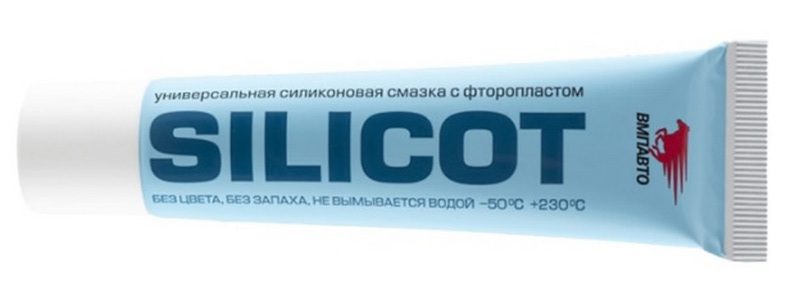
- Environmental friendliness;
- Versatility;
- Wide scope.
- Small tube volume.
2nd place: "VMPAUTO Forplast 250g tube 2501"
This sample is intended for the installation of plastic pipes, which positions it more as a tool for professional rather than individual use. The unique operating temperature from -30°C allows the product to be used without loss of quality of use in the cold season, both in open spaces and in houses under construction. Distinctive features are the ease of assembly of pipes and fittings of sewerage and drainage systems, the ability to ensure the mobility of the system during operation, the excellent protection of rubber seals from drying out and destruction. The recommended cost for retail chains is 260 rubles.

- Professional direction of use;
- Resistance to temperature changes;
- Sufficient tube volume.
- Not detected.
1st place: "LIQUI MOLY Silicon-Fett 7655"
This sample is perfect for contact areas where there are plastic or rubber parts, for example: joints of rubber door and car body seals, seat rails, hose connections with plastic or rubber elements, etc. The product effectively eliminates squeaks of contacting elements, increases service life, providing high-quality protection of rubber and plastic parts from drying out and exposure to ultraviolet radiation.The recommended cost for retail chains is 500 rubles.

- Wide operating temperature range;
- Excellent anti-friction properties;
- Resistant to hot and cold water;
- High resistance to aging;
- High lubricating effect;
- Excellent adhesion to materials.
- Viscosity consistency raises questions.
in the form of oils
3rd place: "REXANT 09-3905"
This product is intended for lubrication of lightly loaded parts in friction and rolling mechanisms in appliances, household and office equipment, as well as for lubrication in the production of molds for rubber products and plastics, rubber seals, high-voltage wire processing, used in solder baths to protect molten solder from oxidation. The operating temperature range is from -50 to +200 degrees Celsius, and the kinematic viscosity is 400. The oil has good electrical insulating, anti-adhesive and defoaming properties, easily forms films on a variety of surfaces (metal-plastic, plastic-rubber, etc. .). The recommended cost for retail chains is 130 rubles.

- Wide scope of use;
- Adequate cost;
- Large temperature range.
- Small volume.
2nd place: "REXANT 09-3921"
Silicone oil PMS-100 (100 ml) REXANT 09-3921 is intended for lubrication of lightly loaded parts in household and office equipment, in friction and rolling mechanisms in devices, as well as for lubrication in the production of molds for rubber products and plastics, rubber seals, processing high voltage wires.The operating temperature range varies from -50oC to +200oC, and the kinematic viscosity is 100 units. The oil has good electrical insulating, anti-adhesive and defoaming properties, easily forms films on a variety of surfaces (metal-plastic, plastic-rubber, etc.). The recommended cost for retail chains is 360 rubles.
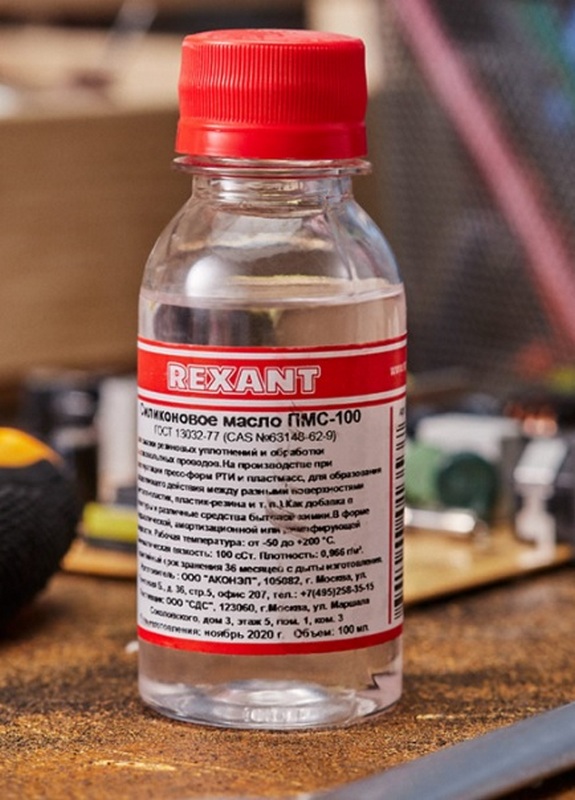
- Adequate cost;
- Sufficient volume;
- Ease of use.
- Not detected.
1st place: "Connector OISI-100"
This product is designed to reduce friction between plastic-plastic, metal-plastic joints, as well as to protect rubber products from premature wear. Volume - 100 ml. It is characterized by excellent friction reducing properties and excellent penetration into the structure of rubber products to prevent their freezing. The recommended cost for retail chains is 530 rubles.

- Sufficient capacity;
- Ease of use;
- High-quality and effective composition.
- Too high price.
In the form of aerosols
3rd place: "LB 400 ml Loctite 2385331"
Such an aerosol is intended for lubrication of belts, knives and conveyors, and is used as a release agent in the mold casting process. The spray is antistatic, food grade and can be used on a variety of surfaces. It can be used for lubricating locks and door hinges, for processing door seals in a car. The recommended cost for retail chains is 1100 rubles.

- Ease of use;
- Sufficient capacity;
- Having a food permit.
- High price.
2nd place: "AXIOM 950 ml a9121"
This aerosol will protect car parts, creating a resistant film with a wide range of operating temperatures. Has a long-lasting water-repellent effect. Deeply penetrates, displacing water. Suitable for metal, plastic and rubber surfaces. Improves the dielectric properties of the insulation of high-voltage wires, prevents current leakage, eliminates corrosion, is economical and versatile. For convenient and precise application, the bottle is equipped with a long spray tube. The recommended cost for retail chains is 1700 rubles.

- The presence in the kit of a special extension cord for working in confined spaces;
- Possibility of spot application;
- Powerful and effective formula.
- High price.
1st place: "SOJEL silicone, 0.5 kg 004518"
This spray is used to lubricate various plastic and rubber car parts. Lubrication protects parts from the harmful effects of the environment, displaces moisture. Easy to apply. The use of the product helps prevent freezing of wipers, door seals, trunk and hood. The recommended cost for retail chains is 2000 rubles.

- Very large capacity;
- High-quality composition with many additives;
- Wide temperature range.
- High price.
Instead of an epilogue
Proper selection and use of silicone lubricants will qualitatively protect the working units and mechanisms that make up their materials, extending the life of the entire structure.They will expand the possibilities of their use in conditions of low and elevated temperatures, restore not only the visual aesthetics, but also the elasticity of rubber parts, protecting them from external damage. Subject to the consistent implementation of the instructions for use, you can get a universal and multifunctional product for protection and care with a wide range of action.
new entries
Categories
Useful
Popular Articles
-

Top ranking of the best and cheapest scooters up to 50cc in 2025
Views: 131649 -

Rating of the best soundproofing materials for an apartment in 2025
Views: 127687 -

Rating of cheap analogues of expensive medicines for flu and colds for 2025
Views: 124516 -

The best men's sneakers in 2025
Views: 124030 -

The Best Complex Vitamins in 2025
Views: 121937 -

Top ranking of the best smartwatches 2025 - price-quality ratio
Views: 114978 -

The best paint for gray hair - top rating 2025
Views: 113393 -

Ranking of the best wood paints for interior work in 2025
Views: 110317 -

Rating of the best spinning reels in 2025
Views: 105326 -

Ranking of the best sex dolls for men for 2025
Views: 104362 -

Ranking of the best action cameras from China in 2025
Views: 102214 -

The most effective calcium preparations for adults and children in 2025
Views: 102010



